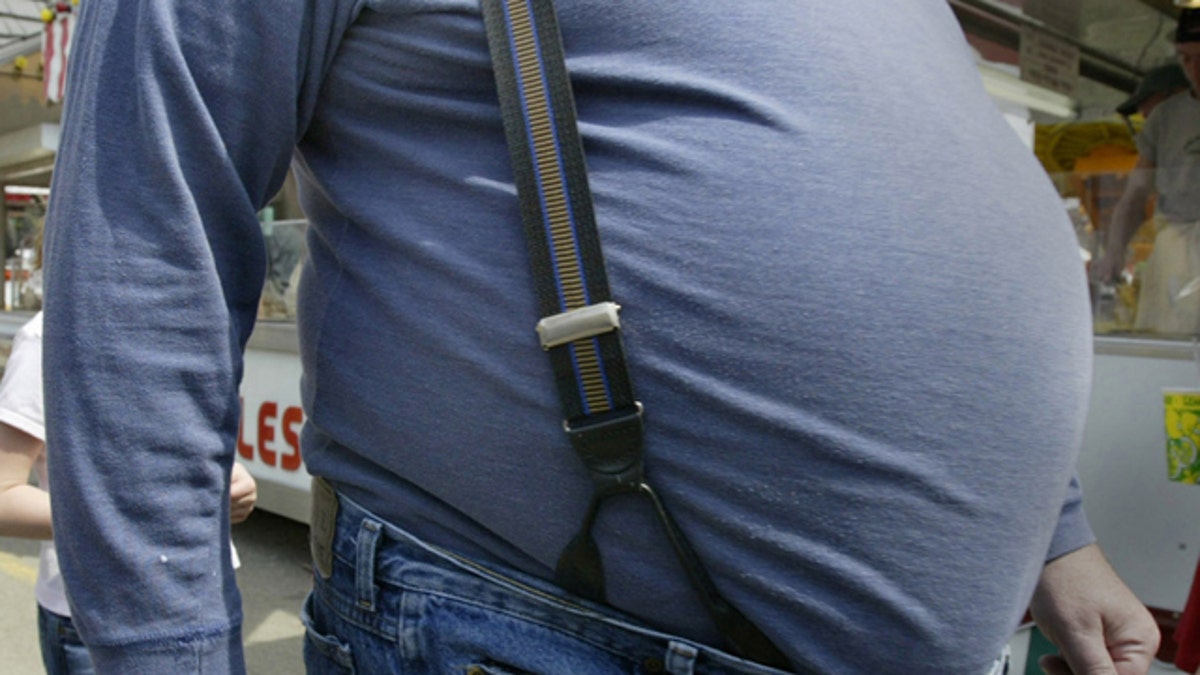
A substantial proportion of obese people don't think they're too fat, new research shows.
Among more than 2,000 obese Dallas County residents surveyed in 2000-2002, 14 percent of African Americans and 11 percent of Hispanics -- but just 2 percent of whites -- believed that they needed to lose weight, Dr. Tiffany M. Powell of the University of Texas Southwestern Medical Center in Dallas and her colleagues found.
People who misperceived their body size were happier with their health, and felt healthier, than those who did recognize their obesity; they were also more likely to think they were at low risk of developing high blood pressure or diabetes or having a heart attack during their lifetimes. In fact, two-thirds of people with body size misperception thought they were at low risk of becoming obese.
The study "points to really a lack of understanding about the effects of obesity," Powell told Reuters Health. At the same time, she added, "you walk a fine line, because you don't want people to necessarily have an unhealthy body image, but you also want people to understand that they need to lose weight."
Powell and her colleagues investigated body size misperception among 2,056 men and women participating in the Dallas Heart Study. All were obese, meaning that they had a body mass index (BMI; a measure of weight in relation to height used to gauge obesity) of 30 or greater. For a woman 5 feet 5 inches tall, this translates to weighing at least 180 pounds; for a 6-foot-tall man, this would mean weighing at least 221 pounds.
The researchers gauged study participants' body perception by having them look at a series of nine figures in a row, from very thin to very obese, and asking them first to choose their ideal figure, and then to choose the figure that looked like them. People who chose ideal body sizes that were the same or bigger than their actual body size were classified as misperceiving their body size.
Eight percent of the study participants overall did not consider themselves to be obese. More educated people or those with higher incomes were no more likely to perceive their weight accurately than less-educated people or those who made less money, the researchers found.
But there were major differences in how people with body size misperception saw their own health risks, even though their actual health risks -- for example, whether or not they had high blood pressure -- were no different from people with accurate perception of their body size. For example, half thought they were healthier than most people their age, compared to a third of people who perceived their weight accurately.
Forty-four percent had not seen a doctor at all in the past year, compared to a quarter of those who accurately gauged their weight. When the "misperceivers" did see a health care provider, they were less likely to discuss their diet, physical activity level, or whether they needed to lose weight.
Based on the findings, Powell said, physicians may want to take a step back before discussing lifestyle habits with their obese patients, and asking them first about how they perceive their weight and whether or not they think they need to lose weight. The fact that many of these people may not see a doctor at all also makes it important to reach out to them in the community, she added, for example at church health fairs.
It's possible, according to Powell, that heavy people's self-perceptions are changing because overweight and obesity are becoming so much more common. "There is this tendency that if everyone around you looks a certain way, you either want to look that way or you're comfortable looking the way you are," Powell said.








































